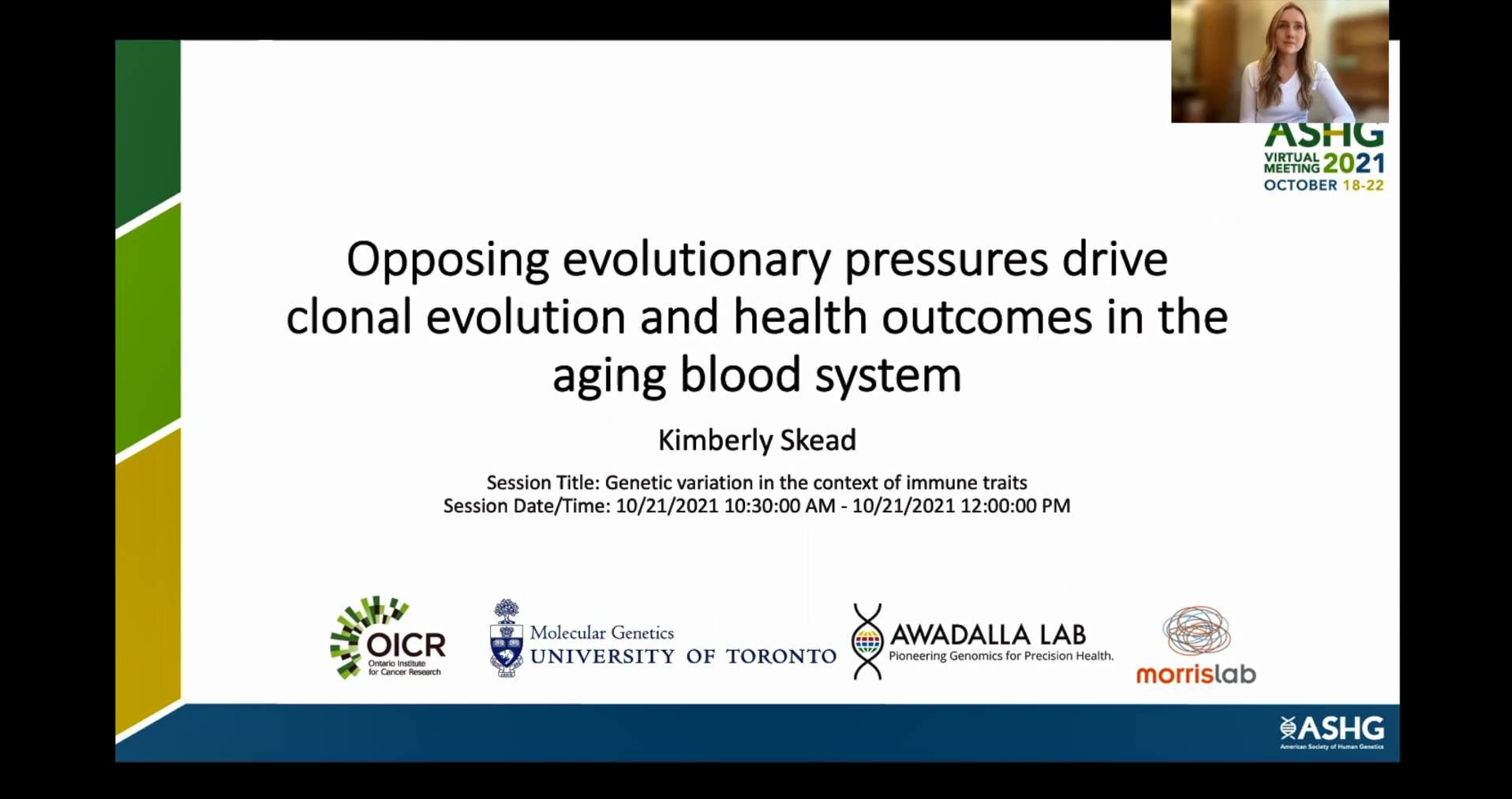Machine learning models using OHS data can help detect risk of Acute Myeloid Leukemia years earlier
Dec 2, 2021 // Study Updates

In this 2021 presentation, Kimberly Skead, a PhD student and coordinator of the Canadian Data Integration Centre, and Philip Awadalla, the Executive Director of the Ontario Health Study, provide insight into why some people develop a type of leukemia while others do not, despite an age-related increase in mutations in blood cells in the European Prospective Investigation into Cancer and Nutrition Study (EPIC). They found that machine learning models that look at differences in the patterns of mutations in blood can identify individuals at a high risk of progressing to Acute Myeloid Leukemia years before diagnosis. Using data from the OHS, along with those of 10,000 other individuals, they then extended this approach to study the how the accumulation of large structural changes in blood shape health outcomes.
